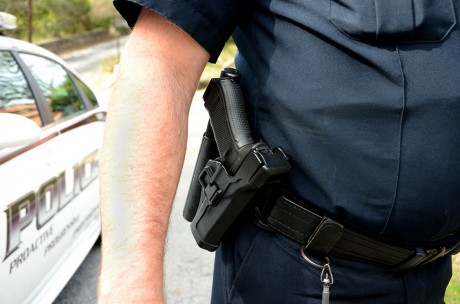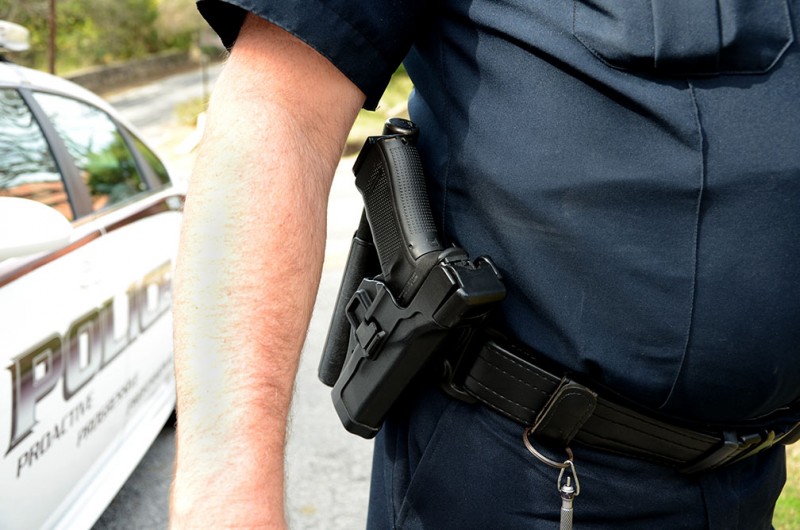
The issue of gun control has recently reappeared in national conversation after a series of shootings, bringing state-wide and campus-focused attention to the issue of gun control.
This renewed push for gun control comes in the wake of the late December mass shooting at Sandy Hook Elementary School that resulted in the deaths of 28 people, 20 of whom were young children.
The Sandy Hook Elementary School shooting occurred more than five weeks ago in what was the second-deadliest school shooting in the history of the United States. (The deadliest was the 2007 Virginia Tech massacre). Since then, there have been a number of key events, including the signing of 23 executive actions by President Obama intended to immediately curtail gun violence, and a renewed bipartisan movement in the Senate to institute stricter gun control measures.
Polls conducted in the aftermath of the shooting have indicated that the majority of Americans favor increased gun control. A mid-January CNN/Time Magazine poll found that 55 percent of Americans support instituting stricter gun laws, and 56 percent of Americans believe that it is currently too easy to purchase a gun. Paul Chapa, chief of police at the Trinity University Police Department (TUPD), agrees.
“Gun control, in different aspects, can work,” Chapa said. “There definitely needs to be a waiting period and there definitely needs to be a background check when someone is applying for a weapons license.”
Some students also feel that it is imperative to restrict access to guns because of the frequency of shootings in recent memory.
“I think there needs to be stricter gun control laws,” said Anna Keene, a sophomore urban studies major and an officer of the Trinity Progressives. “Too many people are being killed by these mass shootings and stricter gun laws would hopefully reduce the phenomenon of mass shootings.”
However, not everyone supports the push for gun control. In fact, many students and faculty at Trinity actively oppose gun control measures.
“When presented with a “˜who’s in favor of gun control and who’s against gun control’ [scenario], I had maybe two or three people that raised their hand in favor of gun control and six or seven […] that raised their hands against gun control,” said David Crockett, associate professor of political science. “I don’t know if that’s reflective of the entire population or reflective of my presidency course.”
“I pretty much think [gun control legislation] is useless,” said Robby Flannery, a junior business major and multiple-gun owner. “When they catch the people that are committing crimes, generally they are using completely legitimate guns that they obtained illegally, with their serial numbers filed off.”
Flannery is joined in his critique by Cameron Goode, a fellow junior and also a multiple gun owner. “I wouldn’t like an assault weapons ban…I would like it not to happen so that people like myself can enjoy their hobbies and have fun,” Goode said.
Flannery’s opposition is grounded in practical concerns about the ease of finding illegal assault weapons.
“If you really want to commit a crime using a gun, you can either make a gun which really isn’t that hard […] or obtain one illegally,” said Flannery.
Calls for gun control were echoed across the nation in the immediate aftermath of the Sandy Hook shooting. The major push for gun control began a few days after the shooting on Dec. 18, when President Obama announced the creation of a gun control task force whose mission would be to compile a list of both executive and legislative steps that could be taken to reduce gun violence.
Headed by Vice President Joseph Biden, the task force created a list of 23 executive actions that range from nominating a director for the Bureau of Alcohol, Tobacco, Firearms and Explosives (which has not had a permanent director since 2006) to starting a national conversation on mental health. The executive actions will allow Obama to partially bypass the Republican-dominated House of Representatives. According to Crockett, however, this is one issue that is unlikely to come down on party lines.
“People oftentimes think this is a Democrat and Republican issue, when it’s really not,” Crockett said. “It doesn’t split neatly along partisan lines.”
Biden’s task force also included in its recommendations a set of legislative actions that should be taken by Congress.
On Wednesday, Jan. 16, in a White House press conference, Obama referenced the shooting at Sandy Hook as a catalyst for change and called on Congress to act in a comprehensive fashion to reform gun violence in America.
“We honor their memories in part by doing everything we can to prevent this from happening again,” Obama said. “This is our first task as a society: keeping our children safe.”
Obama’s specific calls to action by Congress include the reinstatement a Clinton-era federal assault weapons ban that expired in 2004, a new 10-round limit on assault weapons magazines and increased penalties for people who legally buy weapons with the intent of selling them to people who cannot own a firearm (called a “straw purchase”).
As the public policy debate over gun control continues to rage on, it is important to note what the debate is not about: the right of the government to regulate firearms.
“I think one can be a very vigorous proponent of second amendment rights and I don’t think that necessarily prevents the American government from requiring registration or background checks, or closing loopholes and stuff like that,” Crockett said.
(White House staff have released a web page dedicated to outlining Obama’s proposals for gun control, that can be accessed here).







